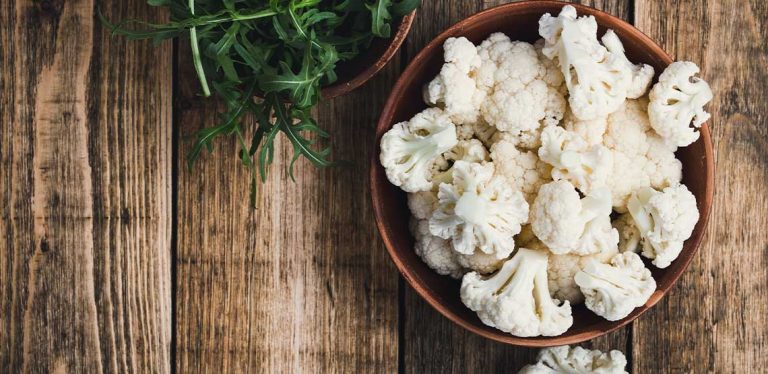Healthy Kidneys, Happy Life
While your diet may be healthy, it could still lack several important foods your body and kidneys desperately need. For people with kidney disease, a balanced diet and medication is often needed in order to manage symptoms.
Several nutrients, such as potassium, phosphorus and sodium, have the potential to harm your kidneys. The list below includes various foods that have low levels of sodium, potassium and phosphorous. We'll also discuss treatments like RETACRIT, indicated for the treatment of anemia due to chronic kidney disease (CKD).
The Best Foods for Healthy Kidneys
1. Cauliflower
Even if you disliked cauliflower as a kid, you might want to give this vegetable a chance now. With its mild taste and a laundry list of nutrients, cauliflower gives your body the essential ingredients it needs to keep working well.
Aside from being an excellent source of fiber, cauliflower includes some beneficial nutrients, such as vitamin K, vitamin C and B vitamin folate. In comparison to other vegetables, cauliflower also has low levels of phosphorous, potassium and sodium.
2. Red Grapes
Red grapes are delicious, tangy, sweet and a good choice if you like snacking all day. Red grapes include flavonoids, which are a powerful tool against inflammation. They're also high in vitamin C, benefit heart health and protect the body against diabetes. Not to mention, they do not add to an expanding waistline. If you like sweet fruits, it does not get any better than red grapes.
3. Garlic
Do you like garlic? Here's a reason why you might love it now!
Garlic is an excellent supplement to salt, which you will need to limit if you have kidney problems. Garlic adds flavor and spice to food and comes with a long list of nutritional benefits. Aside from providing low potassium, phosphorous and sodium levels, garlic works as a hefty source of vitamin C, vitamin B6, manganese and sulfur compounds.
4. Olive Oil
Olive oil is the star of the culinary world. In addition to being phosphorous-free, olive oil works as an excellent source of healthy fat. It includes mono-saturated fat, which is anti-inflammatory, and has low levels of sodium and potassium.
Olive oil prevents the body from putting on useless fat and weight and keeps flavors intact. If you are thinking of switching to a healthier option for oil, olive oil is the way to go.
5. Bell Peppers
Bell peppers are colorful, flavorful, spicy and packed full of nutrients. These bright-colored vegetables contain low sodium, potassium and phosphorous levels and provide vitamin C, vitamin A and a list of nutrients that boost your energy levels through the roof.
A half cup of raw red bell pepper consists of 159% of your daily recommended vitamin C intake. Not bad for a pepper that is spicy in the perfect way!
Other Foods that are Good for Your Kidneys
In addition to these foods, other ingredients that can improve your kidney health include:
- Onions.
- Arugula.
- Buckwheat.
- Macadamia nuts.
- Turnips.
- Radish.
- Pineapple.
- Blueberries.
- Cranberries.
- Shiitake mushrooms.
- Skinless chicken.
- Cabbage.
- Bulgur.
- Egg whites.
Why are Your Kidneys Important?
Consider your kidneys to be your bodyguard: your kidneys keep your body clean, balance your lifestyle and they keep you healthy by removing any nasty elements from your body.
All the while, your kidneys also inspect everything that comes and goes through your system, making sure to only take in everything beneficial and pass it on. Their function is so vital that your body needs two kidneys to break even.
Now, imagine if your kidneys do not receive the same power as they used to. To remain healthy and happy, you must maintain your kidney health as much as possible. The best way to do that is by including several essential foods in your diet.
RETACRIT for Anemia
RETACRIT is a prescription medication used to treat anemia. It is a biosimilar to erythropoietin, which is a hormone naturally produced by the kidneys to stimulate the production of red blood cells in the bone marrow. RETACRIT works by stimulating the bone marrow to produce more red blood cells, thereby increasing hemoglobin levels and improving symptoms of anemia. It is typically used to treat anemia associated with chronic kidney disease, chemotherapy in cancer patients, and certain other conditions where the body's ability to produce red blood cells is impaired.
In Conclusion
So many of the above ingredients are regulars in just about every person's diet. If you are not as open of a food lover, take this opportunity to try new things to improve your palette and upgrade your kidney health.
Your body will thank you for it.
